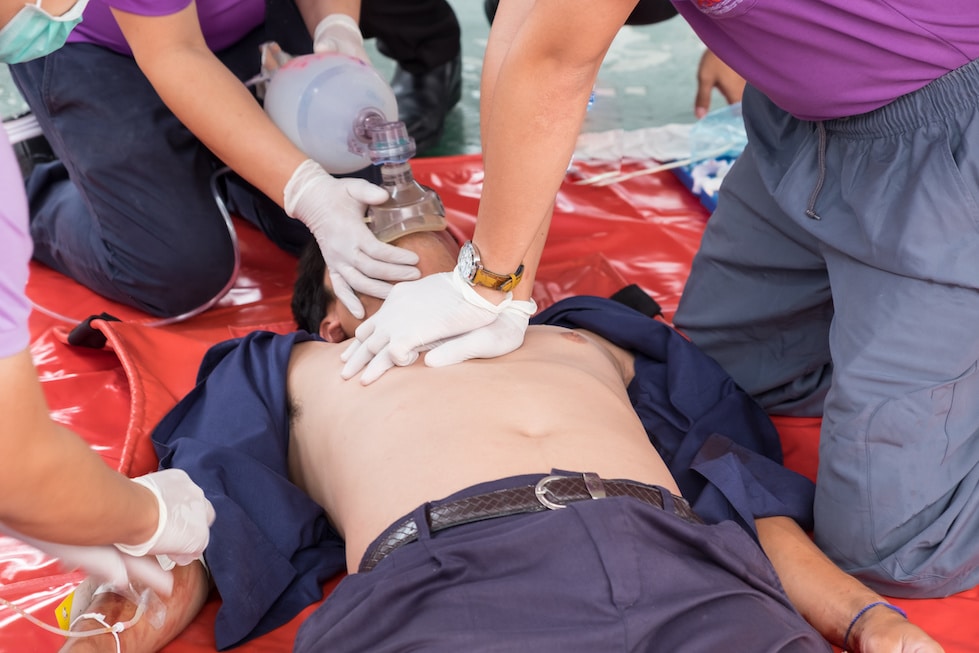Becoming a full- or part-time Emergency Medical Technician requires extreme and rigorous training, and it’s not a career choice to be taken lightly. That’s because emergency medical responders encounter patients in life-threatening situations, ranging from traumatic incidences of cardiac arrest and auto accidents, to drownings to drug overdoses.
EMS techs like the ones we train here at The National Center for Outdoor & Adventure Education work for hospitals, municipalities, and fire departments, and often provide emergency assistance in everyday urban areas as well as at ski areas, throughout the backcountry, at sports events, and even on offshore oil rigs. As a result, those who choose to become EMTs face high-stress situations daily, often dealing with patients who have just suffered a life-changing trauma.
Long shifts in an emergency department or in the back of an ambulance can take a toll, as well poor sleeping habits to due irregular working hours and poor eating habits because of the on-the-run nature of the profession. To make things worse, there’s a stigma attached to EMTs that purports a higher rate of mental health disorders than other occupations, including an increased risk of depression, suicidal thoughts, and a higher rate of substance abuse.
Which is why it’s important that those working in emergency medical services avoid burnout and take care of themselves so that they can continue to support the communities they serve.
Here are some things you can do to take care of yourself as an EMT:
Get active and develop an exercise regimen: This is particularly important because regular exercise is beneficial to mental health.
Find someone to talk with: Finding someone to talk to regarding any issues that may pop up can include peer counseling programs, your co-workers, trained therapists, and a trusted friend or family member. Or join a First Responder Support Network.
Take advantage of ways to decompress: Getting a massage, journaling, playing music, mediating, getting outdoors, drawing, taking a hot bath, and spending time with a dog are all great examples of things you can do to decompress.
Listen to your loved ones: If you are married to a first responder, or have a partner who is an EMT, or are a family member or friend who works in emergency services, be willing to listen when your loved one is ready to talk. Show empathy and appreciation, and above all, be patient after a difficult shift. Find ways to be active together and help them make time for non-work-related activities. For more on this, read Dr. Rachelle Zemlok’s 5 Tips for First Responder Spouses to Help Their Loved One.
Rely on your EMS Education: In addition to yourself and your loved ones looking for ways to improve your emotional status, the emergency medical services industry should be stepping up more in order improve to support its own people. And that support should come during the initial EMS education one receives, with an emphasis on providing a realistic picture of the difficult situations EMTs can expect to encounter. It’s never going to be easy, and it’s not the right profession for everyone. Therefore, it’s up to educators like those of us here at NCOAE to prepare students for the realities they’re likely to face.
As you might imagine, our emergency medicine educators place an emphasis on support for one’s mental health. In addition, the Substance Abuse and Mental Health Services Administration (SAMHSA) provides access to resources likely to assist students and working EMTs with finding treatment.
For more information, find additional tips on the CDC’s Emergency Responders: Tips for taking care of yourself page.
TALK TO US
Have any further questions about our courses, what you’ll learn, or what else to expect? Contact us, we’re here to help!

Leave a comment